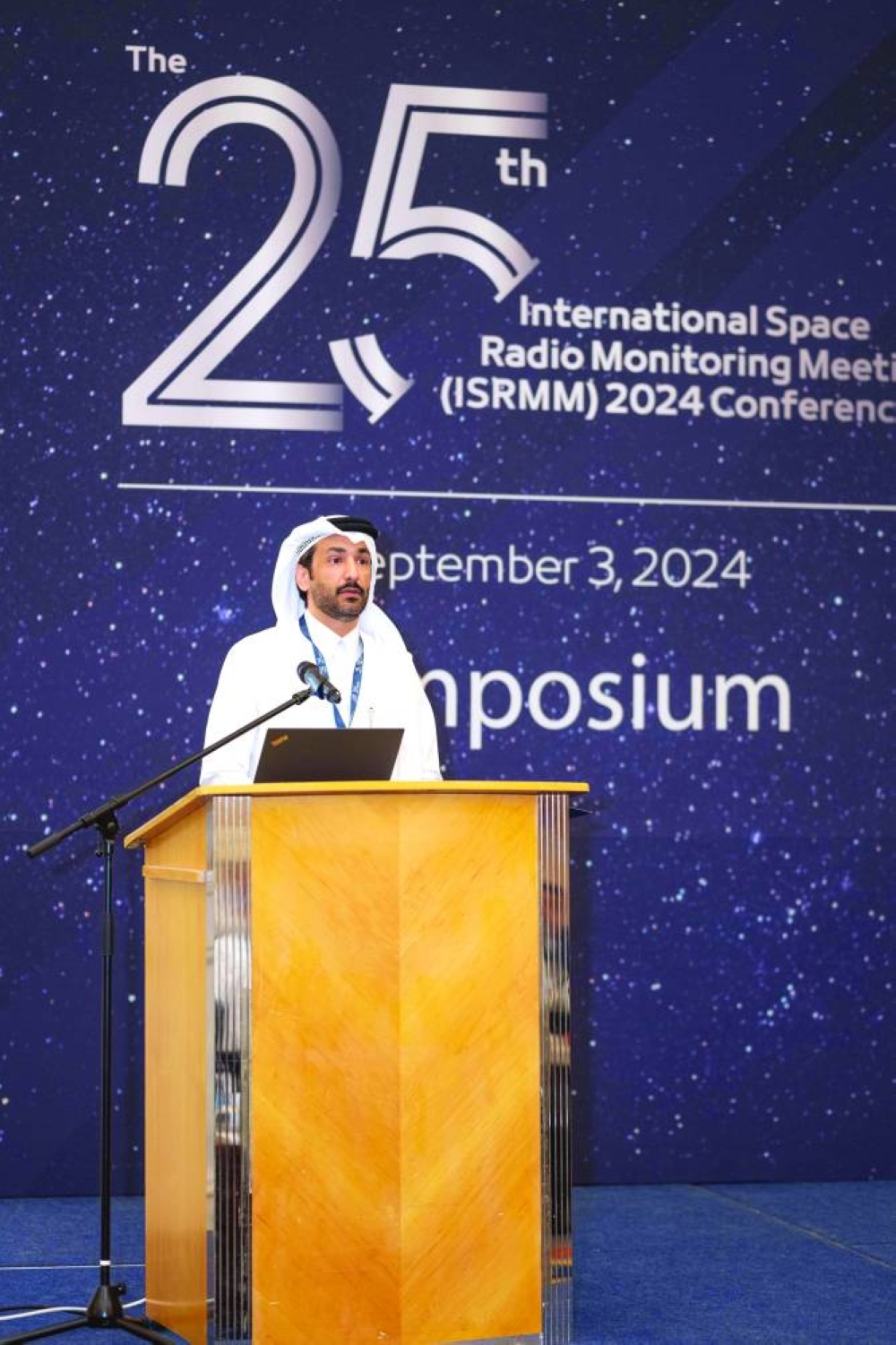The Communications Regulatory Authority (CRA) is hosting the 25th International Space Radio Monitoring Meeting (ISRMM) in Doha until Thursday.
The annual multilateral meeting is attended by participants from communications and spectrum management regulatory bodies engaged in satellite monitoring and measurements, and representatives from satellite communication companies, equipment manufacturers and other satellite-related organisations.
The three-day meeting will explore innovative strategies, address emerging challenges, and collaborate on solutions to ensure the effective and harmonious use of the radio spectrum.
The ISRMM includes a symposium for industry experts and a regulator’s expert meeting. The sessions will provide insights from various sectors, including regulatory bodies, satellite industry, space agencies, monitoring agencies, and other stakeholders on advanced technologies related to space monitoring, geolocation, and interference mitigation, and discuss policies, regulations and recent experiences in this field.
Engineer Ahmad Abdulla al-Muslemani, CRA president, emphasised the crucial role of space and satellite technologies in fostering a sustainable and inclusive digital society.
“Qatar’s commitment to advancing space technology not only aligns with the nation’s vision for sustainable development and economic prosperity but also positions Qatar as a pioneering force in the global space industry,” he stated.
“By investing in these cutting-edge technologies, Qatar aims to drive significant technological innovation, diversify its economy, create new job opportunities, and enhance national security.
“These objectives are central to support the Qatar National Vision 2030, the Third National Development Strategy 2024-30, the Digital Agenda 2030, and the CRA strategy reflecting the country's strategic focus on harnessing space technology for long-term growth and global leadership,” he added.
Space radio monitoring is crucial for identifying and resolving radio frequency interference (RFI), which can disrupt satellite communications. It ensures the safe operation of satellites by monitoring their orbits, preventing collisions, and supporting emergency responses with real-time data on satellite anomalies or failures.
Satellite communication services are essential for earth observation, weather forecasting, and monitoring climate change. These services require sufficient spectrum, and it is the collaborative role of the International Telecommunication Union (ITU) and telecom regulatory authorities around the world that keep these frequencies free of interference.
Qatar
Top experts gather for Int'l Space Radio Monitoring Meeting
Communications Regulatory Authority (CRA) hosts event in Doha

CRA president engineer Ahmad Abdulla al-Muslemani addressing the event.
